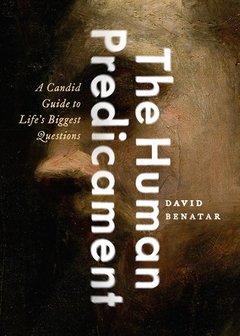Description
The Human Predicament
A Candid Guide to Life's Biggest Questions
Author: Benatar David
Language: English
Publication date: 07-2017
288 p. · 13.5x18.7 cm · Hardback
288 p. · 13.5x18.7 cm · Hardback
Description
/li>Biography
/li>
Are human lives ultimately meaningless? Is our inevitable death bad? Would immortality be better? Should we hasten our deaths by taking our own lives in acts of suicide? Many people ask these big questions and many are plagued by them. Surprisingly few analytic philosophers have spoken to these important questions. When they have engaged the big existential questions they have tended, like more popular writers, to offer comforting, optimistic answers. The Human Predicament offers a less sanguine assessment. David Benatar invites readers to take a clear-eyed view of our situation, defending a substantial, but not unmitigated, pessimism about human life. Benatar argues that while our lives can have some meaning, cosmically speaking we are ultimately the insignificant beings that we often fear we are. A candid appraisal reveals that the quality of life, although less bad for some people than for others, leaves much to be desired in even the best cases. But death, David Benatar argues, is hardly the solution. Our mortality exacerbates rather than mitigates our cosmic meaninglessness. It can release us from suffering but even when it does it imposes another cost - annihilation. This unfortunate state of affairs has nuanced implications for how we should think about immortality, about suicide, and about the aspects of life in which we can and do find deeper meaning. Engaging profound existential questions with analytic rigor and clarity, The Human Predicament is clear eyed, unsentimental, and deeply provocative to some of our most cherished beliefs.
David Benatar is Professor of Philosophy and the Head of the Philosophy department at University of Cape Town, South Africa. He is the author of Better Never to Have Been: The Harm of Coming Into Existence (2006) and Debating Procreation: Is it Wrong to Reproduce? (2015).
© 2024 LAVOISIER S.A.S.




